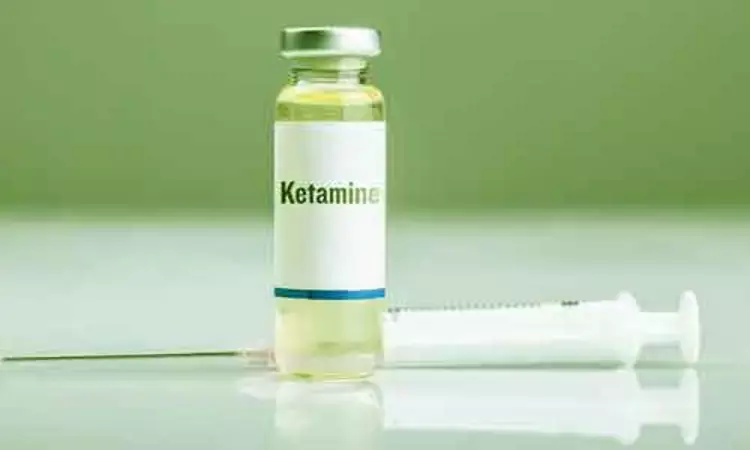- Home
- Medical news & Guidelines
- Anesthesiology
- Cardiology and CTVS
- Critical Care
- Dentistry
- Dermatology
- Diabetes and Endocrinology
- ENT
- Gastroenterology
- Medicine
- Nephrology
- Neurology
- Obstretics-Gynaecology
- Oncology
- Ophthalmology
- Orthopaedics
- Pediatrics-Neonatology
- Psychiatry
- Pulmonology
- Radiology
- Surgery
- Urology
- Laboratory Medicine
- Diet
- Nursing
- Paramedical
- Physiotherapy
- Health news
- Fact Check
- Bone Health Fact Check
- Brain Health Fact Check
- Cancer Related Fact Check
- Child Care Fact Check
- Dental and oral health fact check
- Diabetes and metabolic health fact check
- Diet and Nutrition Fact Check
- Eye and ENT Care Fact Check
- Fitness fact check
- Gut health fact check
- Heart health fact check
- Kidney health fact check
- Medical education fact check
- Men's health fact check
- Respiratory fact check
- Skin and hair care fact check
- Vaccine and Immunization fact check
- Women's health fact check
- AYUSH
- State News
- Andaman and Nicobar Islands
- Andhra Pradesh
- Arunachal Pradesh
- Assam
- Bihar
- Chandigarh
- Chattisgarh
- Dadra and Nagar Haveli
- Daman and Diu
- Delhi
- Goa
- Gujarat
- Haryana
- Himachal Pradesh
- Jammu & Kashmir
- Jharkhand
- Karnataka
- Kerala
- Ladakh
- Lakshadweep
- Madhya Pradesh
- Maharashtra
- Manipur
- Meghalaya
- Mizoram
- Nagaland
- Odisha
- Puducherry
- Punjab
- Rajasthan
- Sikkim
- Tamil Nadu
- Telangana
- Tripura
- Uttar Pradesh
- Uttrakhand
- West Bengal
- Medical Education
- Industry
ECT better than ketamine for major depressive episodes: JAMA

The results of a recent systematic review and meta-analysis by Vikas Menon and colleagues point to electroconvulsive therapy's (ECT) superior effectiveness over ketamine in treating people with major depressive episodes (MDE). The findings of this study were published in the Journal of American Medical Association.
It is necessary to clarify the relative effectiveness of ketamine and electroconvulsive treatment in people with severe depressive episodes. Therefore, this study compared the effectiveness of ketamine against ECT in treating depression in individuals with MDE, as well as the response and remission rates, number of sessions needed to achieve response and remission, and side effects.
To find pertinent English-language trials, two researchers independently searched ScienceDirect, MEDLINE, and Google Scholar databases using a mix of pertinent Medical Subject Headings terms and free-text keywords from database inception through May 15, 2022. For this investigation, parallel-group randomized clinical trials (RCTs) were chosen. Data extraction and bias risk assessment were carried out separately by two researchers. In random-effects meta-analyses, results at one week after treatment were aggregated as standardized mean difference (SMD; Hedges g) for continuous outcomes and risk ratio (RR) for categorical outcomes. The study's 1-week (or nearest) response and remission rates, 1-week (or nearest) post treatment depression ratings, and the number of treatment sessions needed to achieve response and remission were the efficacy outcomes. unfavorable impacts were reported in safety outcomes.
The key findings of this study were;
1. Five trials were meta-analyzed (ketamine group: 141; ECT group: 137).
2. For post treatment depression ratings, the total pooled SMD was 0.39.
3. In a sensitivity analysis of methodologically stronger studies, ECT outperformed ketamine for this efficacy result.
4. In terms of study-defined response and remission rates, ECT outperformed ketamine.
5. There were no discernible variations in the number of sessions needed to achieve response and remission, as well as for cognitive outcomes, across the groups.
The results of this study imply that alleviating depressive symptoms in persons with an MDE may be more effective with ECT than ketamine. The benefit, however, is negligible, thus for many patients-especially those who wish to be safeguarded against cognitive risks—a trial of ketamine may be preferable to a trial of ECT.
Reference:
Menon, V., Varadharajan, N., Faheem, A., & Andrade, C. (2023). Ketamine vs Electroconvulsive Therapy for Major Depressive Episode. In JAMA Psychiatry. American Medical Association (AMA). https://doi.org/10.1001/jamapsychiatry.2023.0562
Neuroscience Masters graduate
Jacinthlyn Sylvia, a Neuroscience Master's graduate from Chennai has worked extensively in deciphering the neurobiology of cognition and motor control in aging. She also has spread-out exposure to Neurosurgery from her Bachelor’s. She is currently involved in active Neuro-Oncology research. She is an upcoming neuroscientist with a fiery passion for writing. Her news cover at Medical Dialogues feature recent discoveries and updates from the healthcare and biomedical research fields. She can be reached at editorial@medicaldialogues.in
Dr Kamal Kant Kohli-MBBS, DTCD- a chest specialist with more than 30 years of practice and a flair for writing clinical articles, Dr Kamal Kant Kohli joined Medical Dialogues as a Chief Editor of Medical News. Besides writing articles, as an editor, he proofreads and verifies all the medical content published on Medical Dialogues including those coming from journals, studies,medical conferences,guidelines etc. Email: drkohli@medicaldialogues.in. Contact no. 011-43720751


